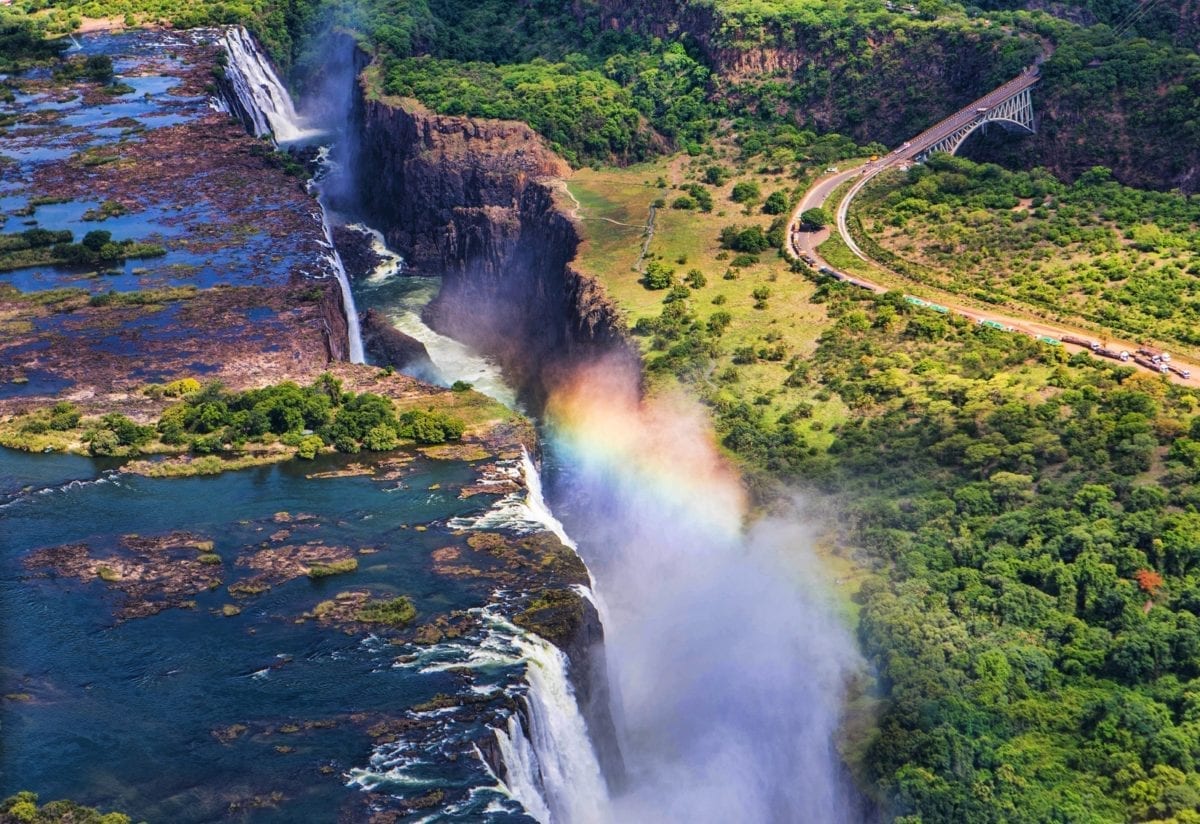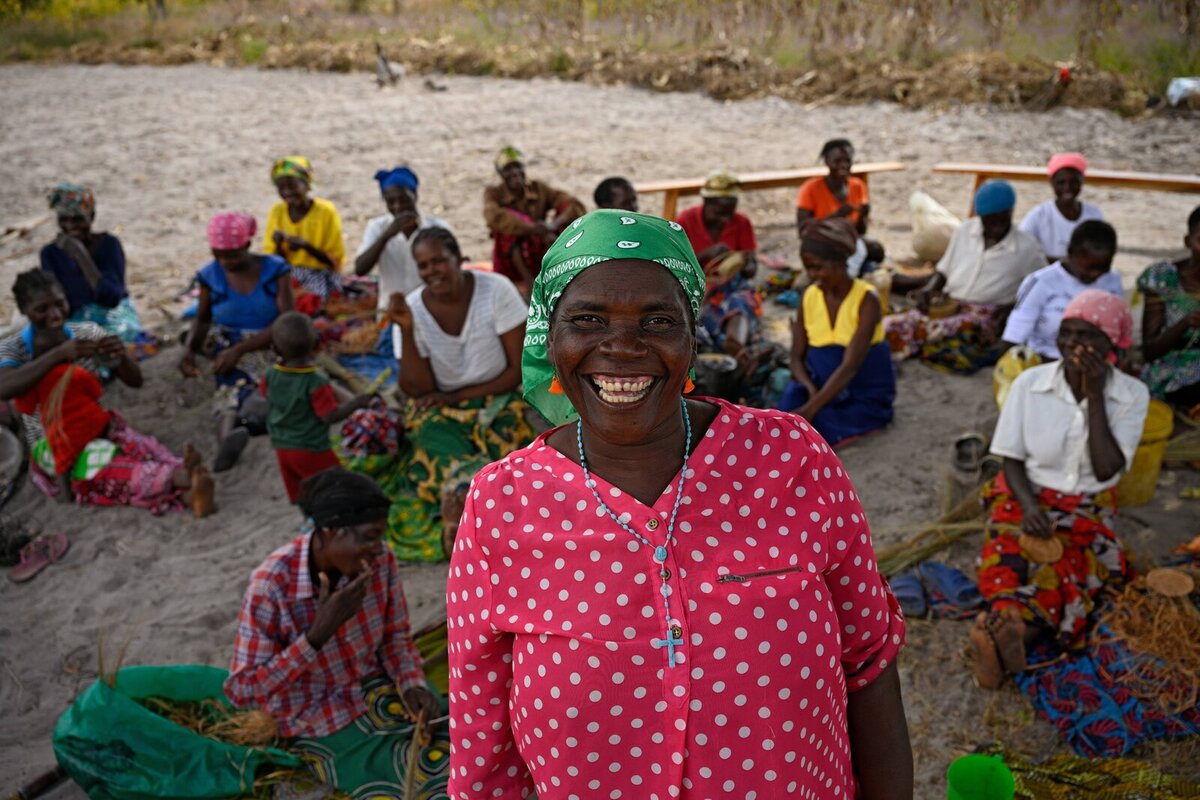Zambia: A Rich Tapestry of Culture, History, and Natural Beauty
Introduction:
Nestled in the heart of Southern Africa, Zambia is a land of captivating contrasts, where rugged landscapes, rich cultural heritage, and abundant wildlife converge to create a tapestry of unparalleled beauty and diversity. From the mighty Victoria Falls to the vast plains of the Zambezi Valley, Zambia's allure extends far beyond its geographical boundaries, offering visitors a glimpse into the soul of Africa. In this exploration, we embark on a journey through Zambia's history, culture, natural wonders, and economic landscape, uncovering the essence of this vibrant nation.
Geography and Natural Wonders:
At the crossroads of Central, Southern, and Eastern Africa, Zambia boasts a diverse topography characterized by lush forests, expansive savannas, and meandering rivers. The country's crown jewel is undoubtedly the majestic Victoria Falls, one of the Seven Natural Wonders of the World. Known locally as "Mosi-oa-Tunya," meaning "The Smoke That Thunders," the falls cascade over a precipice spanning nearly two kilometers, creating a mesmerizing display of spray and mist that can be seen from miles away.
Beyond Victoria Falls, Zambia is home to an array of breathtaking landscapes and natural attractions. The Zambezi River, Africa's fourth-longest river, courses through the country, providing a lifeline for wildlife and communities alike. The Lower Zambezi National Park, located along the river's banks, offers unrivaled opportunities for wildlife viewing, with elephants, hippos, and crocodiles congregating along its shores. In the north, the vast wetlands of the Bangweulu Swamps teem with birdlife, including the elusive shoebill stork, while the pristine wilderness of South Luangwa National Park lures safari enthusiasts with its abundance of lions, leopards, and buffalo.
History and Cultural Heritage:
Zambia's history is a tapestry woven from the threads of indigenous tribes, colonial influences, and struggles for independence. The earliest inhabitants of the region were hunter-gatherer societies, whose rock art and artifacts provide glimpses into Zambia's ancient past. Later, Bantu-speaking groups migrated into the area, establishing kingdoms such as the Lozi, Chewa, and Bemba, each with its own rich cultural traditions and customs.
European exploration of Zambia began in the 19th century, with British and Portuguese traders seeking routes to the interior. In the late 19th and early 20th centuries, Zambia, then known as Northern Rhodesia, became a British protectorate, and the territory was carved up by European powers during the Scramble for Africa. The colonial period left an indelible mark on Zambia, shaping its political, social, and economic landscape.
In 1964, Zambia gained independence from British rule, with Kenneth Kaunda becoming the country's first president. Kaunda's leadership was marked by a commitment to pan-Africanism and non-alignment, as well as efforts to promote national unity and development. Despite facing economic challenges and political upheaval in the decades that followed, Zambia has remained resilient, drawing strength from its cultural diversity and spirit of resilience.
Economy and Development:
As one of Africa's leading copper producers, Zambia's economy has long been dependent on mining, with the copper industry serving as the backbone of its economic infrastructure. However, the country has sought to diversify its economy in recent years, harnessing its natural resources and promoting sectors such as agriculture, tourism, and renewable energy.
Agriculture plays a vital role in Zambia's economy, employing a significant portion of the population and contributing to food security and rural development. The country's fertile soils support the cultivation of crops such as maize, cassava, and tobacco, while livestock rearing and fishing also play important roles in the agricultural sector.
In addition to agriculture, tourism holds immense potential for Zambia's economic growth, thanks to its wealth of natural attractions and wildlife reserves. Efforts to promote sustainable tourism and conservation have led to the establishment of community-based initiatives and eco-lodges, providing opportunities for local communities to benefit from tourism while preserving Zambia's natural heritage.
Challenges and Opportunities:
Despite its natural wealth and cultural heritage, Zambia faces a myriad of challenges on the path to development. Economic inequality, infrastructure deficiencies, and environmental degradation are among the key issues confronting the country, exacerbated by factors such as climate change and global economic fluctuations.
In recent years, Zambia has also grappled with political tensions and governance issues, raising concerns about democracy and human rights. Efforts to address corruption and improve governance have been met with mixed results, highlighting the need for greater transparency and accountability in the country's political institutions.
However, amidst these challenges, Zambia remains a land of opportunity, with vast potential for sustainable development and prosperity. The country's young and growing population, coupled with its strategic location and abundant natural resources, positions it as a key player in Africa's economic future.
Conclusion:
In conclusion, Zambia is a country of remarkable beauty, diversity, and resilience, where the echoes of the past mingle with the aspirations of the future. From the thundering cascades of Victoria Falls to the vibrant rhythms of its cultural heritage, Zambia's allure lies in its ability to captivate the imagination and inspire the soul. As the country navigates the complexities of the modern world, it is poised to harness its potential and chart a course towards a brighter tomorrow, guided by the spirit of unity, innovation, and progress.

























![[ℕ𝕖𝕧𝕖𝕣] 𝕊𝕖𝕝𝕝 𝕐𝕠𝕦𝕣 𝔹𝕚𝕥𝕔𝕠𝕚𝕟 - I Think I Have Crypto PTSD](https://cdn.bulbapp.io/frontend/images/819e7cdb-b6d8-4508-8a8d-7f1106719ecd/1)










